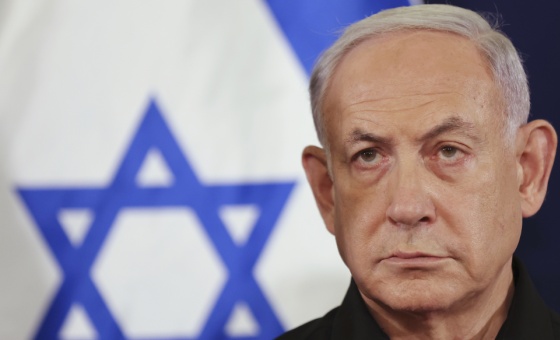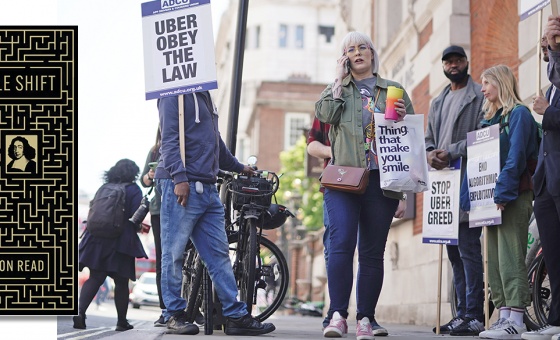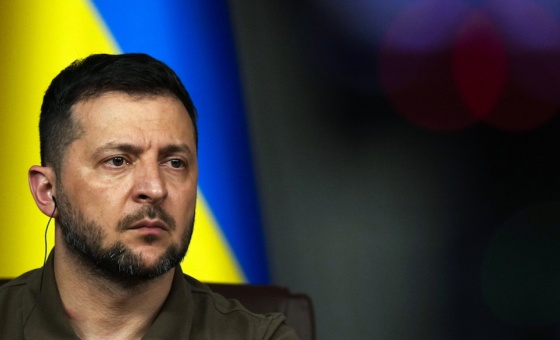This is the last article you can read this month
You can read more article this month
You can read more articles this month
Sorry your limit is up for this month
Reset on:
Please help support the Morning Star by subscribing here
A YEAR or two ago, in these pages in December 2018, I reported on of the latest batch of cases of child abuse on young and or vulnerable church goers by vicars, priests and other clergy.
Horrified, I discussed this news with my local Northamptonshire village vicar. She has since been promoted to high position at Peterborough Cathedral.
She told me that the Church of England (CoE) didn’t see child abuse as much of a problem, but directed my attention to what she said were much higher levels of paedophile abuse in the Roman Catholic Church. I published a major article on just that in these pages.
Now an independent inquiry into child sexual abuse has revealed that the Church of England did have the same problem but has been far more keen to preserve its own reputation than help victims.
It also hid away its paedophile priests and bishops, while still allowing them all the comforts the church had to offer. It even welcomed the guilty parties to conduct services and lead worship in its churches.

The report made clear that perpetrators were often given more support than their victims as the church betrayed the abused in order to protect its own reputation as a supposedly caring and loving Christian organisation.
This isn’t the first time the established Anglican Church, headed by no less a person than the Queen, has expressed its sorrow and surprise when its vast cesspit of child abuse has been revealed, if only briefly, to the public gaze.
Only time will tell if once again, when the headlines and news reports quieten down, some Anglican clergy will return to paedophile business as usual.
This latest report said that nearly 400 clergy and other CoE leaders were convicted of abuse between the 1940s and 2018, and the church defended these criminal perpetrators instead of protecting children and vulnerable people from them and the many other sexual predators in dog collars.
Examples over the many years included Dean Robert Waddington, about whom serious allegations were made in 1999.
The then Archbishop of York, John Sentamu, denied any possibility of the accusations being correct.
The church gave its blessing for Waddington, who was dean of Manchester from 1984 to 1993, to continue holding services on the grounds of his age and frailty.
It seems the church gave no consideration of the age and frailty of the children he had abused and with whom he still came into contact. This continued until his death.
Another example was Reverend Ian Hughes, from Merseyside, who was convicted in 2014 of downloading 8,000 obcene images of children. His offending was played down by a senior colleague.
The report also found examples of clergy actually being ordained into the church despite already having a criminal record of child sexual offences.
The inquiry found that the church did not take allegations seriously and neglected the “physical, emotional and spiritual well-being of children and young people in favour of protecting its own reputation.”
In 2018, the latest year for which figures are available, there were more than two-and-a-half-thousand safeguarding concerns reported to dioceses throughout England concerning either children or vulnerable adults.
The report is based on the inquiry’s public hearings, held in July 2019, that investigated safeguarding issues in the Church of England and its sister Church in Wales.
The chair of the inquiry, Professor Alexis Jay, said: “Over many decades, the Church of England failed to protect children and young people from sexual abusers, instead facilitating a culture where perpetrators could hide and victims faced barriers to disclosure that many could not overcome.

“Within the Church in Wales, there were simply not enough safeguarding officers to carry out the volume of work required of them.
“Record-keeping was found to be almost non-existent and of little use in trying to understand past safeguarding issues.”
Prof Jay added it was vital that the church improved how it responded to allegations of child sexual abuse.
One victim of abuse, who asked to be known simply as Gilo, was raped by a clergyman in London more than 40 years ago.
Since then Gilo had made more than a score of attempts to contact senior members of the church after his decision to report the assaults. He often received no reply.
The church eventually agreed it was at fault and reached a financial settlement with Gilo.
He says many survivors still felt a “tremendous sense of anger and lack of trust” in the church.
He says it would take courage from the church and its leaders to salvage and redeem itself.
The Archbishop of Canterbury, Justin Welby, and the Archbishop of York, Stephen Cottrell, have both said they will not make excuses, and offer their sincere and heartfelt apologies.
The Church of England, they say, is ready to support anyone who comes forward and will honour its commitment to change.
It should be remembered that Welby has been top man, effectively chief executive officer, of the church and thus ultimately responsible for anything that happened within its sacred portals, since 2013.
In fact we have had seven years of silence from Welby.
The independent inquiry’s recommendations are likely to be endorsed in full by the House of Bishops, and put to its governing General Synod in November.
However the church and its hierarchy have made such declarations before, only to go back to the old ways once the incense-scented smoke had cleared.
Church abuse survivors’ groups say the inquiry’s findings represent only the tip of an ecclesiastical iceberg.
Home Secretary Priti Patel — herself a Hindu — rushed to catch the bandwagon, pledging to review the church’s report and decide how to respond.
When asked how soon she might have such a response her spot-on, accurate and precise answer was “in due course.”
The report made several recommendations on how the church could go forward.
Among them were:
• The church should improve how it responds to safeguarding complaints — by, for example, reintroducing a rule to expel any member of the clergy found guilty of child sexual abuse offences. How can it be that that existing rule was ever rescinded?
• Responsibility for safeguarding should be removed from diocesan bishops, some of whom have themselves proved to be paedophiles, and given to qualified professional safeguarding officers employed but not controlled by the church’s central hierarchy.
• The Church of England and Church in Wales should share information about clergy who move between the two institutions. Both churches should introduce policies for funding and support of survivors of child sexual abuse by perpetrators who had a connection to the church.
Prof Jay said she hoped the report and its recommendations would help to “ensure these failures never happen again.”
The Church of England reacted as it has to similar accusations and reports in the past: “It makes shocking reading,” it said.
“The entire institution must learn lessons from this inquiry,” it went on.
Sadly these oh-so-familiar responses have been heard many times before but have never been seriously acted upon.
In a joint statement the church’s lead safeguarding bishop, Dr Jonathan Gibbs, Bishop of Huddersfield, and Melissa Caslake, the church’s national director of safeguarding, claimed there had been some improvements to safeguarding in the church in recent years, but admitted: “We wholeheartedly regret that in some areas, most importantly support for victims and survivors, progress has been too slow.”
Will the Church of England move any faster and more decisively this time? Or will hypocrisy and procrastination triumph yet again?
Can we look forward to another case of the church, like God herself, if she really exists, moving in a slow and mysterious way, her wonders to perform?











